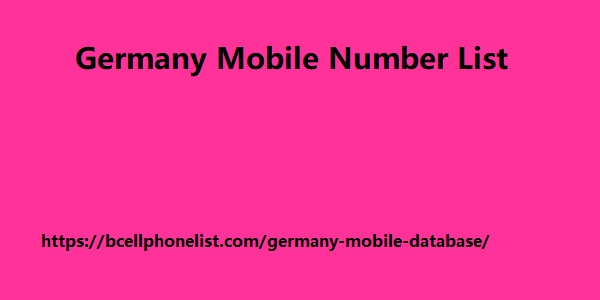Post by account_disabled on Mar 9, 2024 23:05:46 GMT -10
Management directly affects the commercial relationship you have with clients. This is why webdox clm turns out to be an excellent alternative for any company that seeks to successfully achieve its commercial goals.Purchrequirements by country, so continuing to use the usual methods to create and manage contracts in procurement is a risk that compromises the contracting and commercial management of companies, key aspects that establish the framework of any commercial relationship. Additionally, the increase in electronic commerce due to the pandemic has meant the need to create new distribution channels, so companies in the food and beverage sector are in a state of constant pressure as they have to minimize the risk of interruptions in the supply chain and therefore, the dissatisfaction of end customers. -> keep reading and check out the infographic on this topic <- therefore, as a purchasing manager in the food and beverage industry, it is essential to understand if the strategy and structure to develop, manage and fulfill contracts with suppliers is being executed in the best way.
The purchasing department has the responsibility of acquiring all those goods or services that the organization needs for resale or the company's own use, which means that the supply chain must be fluid, agile and effective, through correct Germany Mobile Number List communication between departments. . Under this same aspect, the purchasing manager has the challenge of negotiating the best price to acquire the goods or services that the company needs to operate, but without affecting quality, so when managing contracts with suppliers, it is they must establish obligations and clauses in a clear and timely manner, so that efficiency or even business continuity is not affected by contractual breaches between the parties. Due to this, the commitments that are established and the agreements that exist in the organization are going to be essential aspects to trigger the content of the contract with a supplier of goods or services, so special care must be taken in the management and administration of contracts in such a changing and high-demand sector as food and beverages. Look at the infographic we prepared for you! Abm-food-and-drink-shopping-read-more-img2 see full infographic the contractual challenges of the purchasing manager in the food and beverage industry the purchasing manager in the food and beverage industry must constantly face a series of challenges and regulatory demands, in addition to consumer preferences that change abruptly, which is why companies must have more agile contractual processes to respond.

To the needs of end consumers. Likewise, compliance, regulatory and sustainability pressures, higher ingredient and labor costs, among other aspects, must be responded to in a timely manner. Review below some of the main challenges that the procurement area must face on a daily basis in its contractual processes with suppliers to the food and beverage industry: lack of visibility of the contractual process: for the procurement area, it is key to make transparent and give full visibility to the organization of the entire process of managing contracts with suppliers, especially when so many types and volume of contracts must be managed. Without an adequate tool that allows centralizing and automating the entire contract life cycle, complying with this first aspect is practically impossible, which can generate a negative image for the purchasing manager. Inefficient control in contractual relationships: not having absolute control of contractual negotiations can imply risks and, therefore, unclear contracts, which can mean errors in negotiation with suppliers. With clm (contract lifecycle management) software, you reduce risk by building better contracts in the food and beverage industry, with better collaboration, greater control and traceability.
